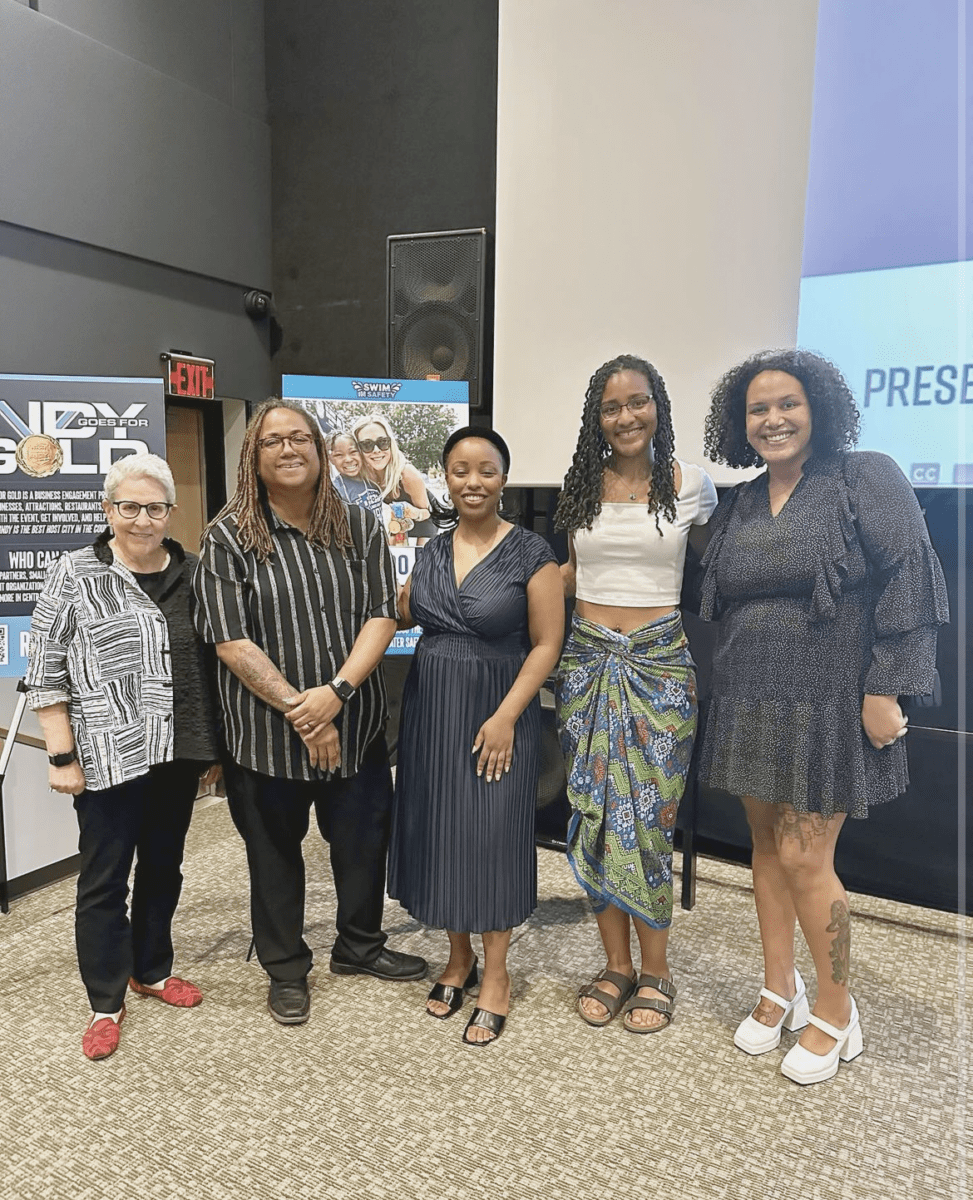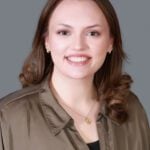In conjunction with Indiana Humanities, Indy Sports Corp sponsored a panel entitled Deep Waters: A Critical Conversation on Water Access, Equity, and Safety in Indianapolis on April 18 at Kan-Kan Brasserie and Cinema.

The conversation precedes the nine-day U.S. Olympic swimming trials, an event that is expected to draw nearly 50,000 tourists to the Circle City, lead to the building of three temporary swimming pools in Lucas Oil Stadium and encourage a multitude of events and activities in the weeks prior.
While the actual trials will take place from June 15-23, the panel sought this opportunity to begin conversations about water access in Indianapolis, highlight initiatives to encourage swim lessons and address disparities and stereotypes that minorities face when learning to swim.
“The themes of this talk are not unique to Indy,” said moderator Ebony Chappel, the executive director of Friends of Belmont Beach, a nonprofit dedicated to reinvigorating the swimming hole located in Central Indiana.
The panel featured Kay Hawthorne, environmental justice director for Friends of the White River, Inc., Dr. Susan Hyatt, professor emerita of Anthropology at Indiana University Indianapolis, and Teigha Mae Van Hester, assistant professor at Butler University of race, gender, and sexuality studies.
Covering a wide array of topics, the panelists talked about when they first understood the inequities in water access and how that shaped their lives.
“I realized the disparity in middle school and high school,” said Hawthorne. “There were some drownings. That sparked a discussion on who can swim and who can’t.”
Van Hester and Hyatt had similar experiences, both describing incidents of drowning or realizing that Black or brown people were not swimming at the same rate as their peers. Van Hester added that she had been developing ideas around addressing the inequities in swimming abilities.
The panelists discussed the events in Indianapolis’ history that led to a disparity in access to water, and how this disparity spread across local communities.
“Waterways suffered the worst pollution in African American neighborhoods, but Indy is not at all unique. These stories are characteristic of most American cities,” said Dr. Hyatt, who worked on the “Invisible Indianapolis” project which uncovered statistics related to these disparities.
Speaking on the original African associations and interpretations of water, Van Hester described the water gods in Africa, and how those legacies and history have been lost over time.
“We see all these representations of trauma with water…[African Americans] were brought here as a part of a transaction, as laborers… Leisure- the ability to be safe, and to be Black, and outdoors, and free, was not permitted,” said Van Hester. “We need to reclaim our Black bodies as bodies of leisure.”
Looking ahead to the future, Chappel asked the panelists how the city can improve water access, what initiatives can be funded or need community support, and how they view the current disparities.
“I think we’re at a very pivotal moment right now with our waterways because we’re facing the gentrification of water, and so water is going to become less accessible to people for those reasons,” said Dr. Hyatt. “We need to have community organizing and action.”
Echoing Dr. Hyatt’s response, Van Hester encouraged everyone present to recognize the difference in circumstances minorities face when it comes to water, especially as it pertains to swimming.
“I think it comes down to just going out and seeing. Being aware of who is in what spaces and who is not is a big thing to kind of address our unconscious bias. When we think about teaching people to be safe around water, we also need to think about how they learn and their experiences,” said Van Hester.
Chappel closed by saying, “One of the tricks of oppression is to make you feel like everything is pessimistic, like there is no hope, like you don’t belong and I think all of this work that’s being done is to counter that narrative.”
For more information about what Indy Sports Corp. is doing to encourage swimming access and equity, visit https://www.indianasportscorp.org/
Contact Staff Writer Hanna Rauworth at 317.762.7854 or follow her at @hanna.rauworth
Hanna Rauworth is the Health & Environmental Reporter for the Indianapolis Recorder Newspaper, where she covers topics at the intersection of public health, environmental issues, and community impact. With a commitment to storytelling that informs and empowers, she strives to highlight the challenges and solutions shaping the well-being of Indianapolis residents.










